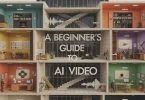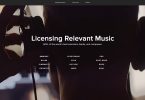
NOTE: This article was originally published as an Issue of Cut/daily, my free weekly newsletter for Post-Production professionals. It is published here with additional content.
What should you do when times are slow?
That’s a question I tried to answer back in #352 – What To Do When There Is No Work, which essentially covered how freelancers can expect, embrace, and prepare for unemployment.
Having been freelance my entire working life I feel like I’ve learned a thing or two about doing this well, but it’s never actually easy.
And in the back-balcony, restricted-view section of the industry that I actually edit in, I’ve not experienced the unimaginably tough months of arduous drought that many of our comrades in the competitive film and TV world have or are still enduring.
In this issue of Cut/daily, I want to answer this question from another angle, similar to how I did recently in #421 – Why do people do this?
UPDATE – Get 10% off any Post Super course with code: PS-10OFF
What should video editors do when there is no work?
When times are slow, invest in yourself, your future, and your skills:
- Reach out to people you respect to build new connections – most people have more time than usual.
- Support each other – coffee dates, job news, trade skills.
- Invest in learning new things.
- Update your systems (and your portfolio/reel/site/CV).
- Take time to clear out old junk (physical, mental, emotional, spiritual)
All that as prologue, I wanted to share with you a (new to me) platform called Post Super*, which delivers certified workflow training and plugs you into a global network of thousands of Post Production Supervisors and other Post professionals.
Post Production Producers & Supervisors are now the line producers in Post production and we have huge spending power because we control Post Production budget, schedule and where the work gets done for all the content that gets made.
We are now a well respected part of the Film & HETV team and are considered a Key HOD position.
Now these sound like the kinds of people you want to be friends with!
*This isn’t sponsored or anything, I just hope using Post Super helps you out.
Post Super – An Editor’s Best Friend
Post-Super is a different kind of editorial training platform, and one that actually delivers far more than just training.
Created by veteran Post-Supervisor Gemma Nicholson (Harry Potter 7; The Legend of Tarzan, Cinderella, Dark Crystal: The Age of Resistance) and her sister and business partner Jess Hartley, Post Super provides a three-pronged approach to upskilling professionals in Post.
- Community (Talent directory, events, etc.)
- Training (From a few days to many weeks)
- Information (Knowledge base, news, resources)
Post Super is useful for HoDs, Producers, Directors, and anyone who wants to grow in Post, including editors, sound editors, mixers, colorists, DITs, VFX editors, assistants in all departments, trainees … I could go on.
Understanding your place in the flow
The unique angle is that their training will give you the holistic and technical workflow knowledge to understand how High-End TV (HETV) and Feature films actually get made.
When you understand the full picture, you can not only do your own job far better but also add tremendous value to the overall process by not messing it up for anyone else.
Plus, if you’re an editor or assistant who can walk in with detailed working knowledge of the entire post-production pipeline, understand the lingo, and navigate the hierarchies of each department, then you’re sure to be noticed.
TLDR: If you do nothing else: add yourself to the Post Super Global Directory. It’s free, takes 2 mins, and might help land you a job.
Post Super’s Training Courses
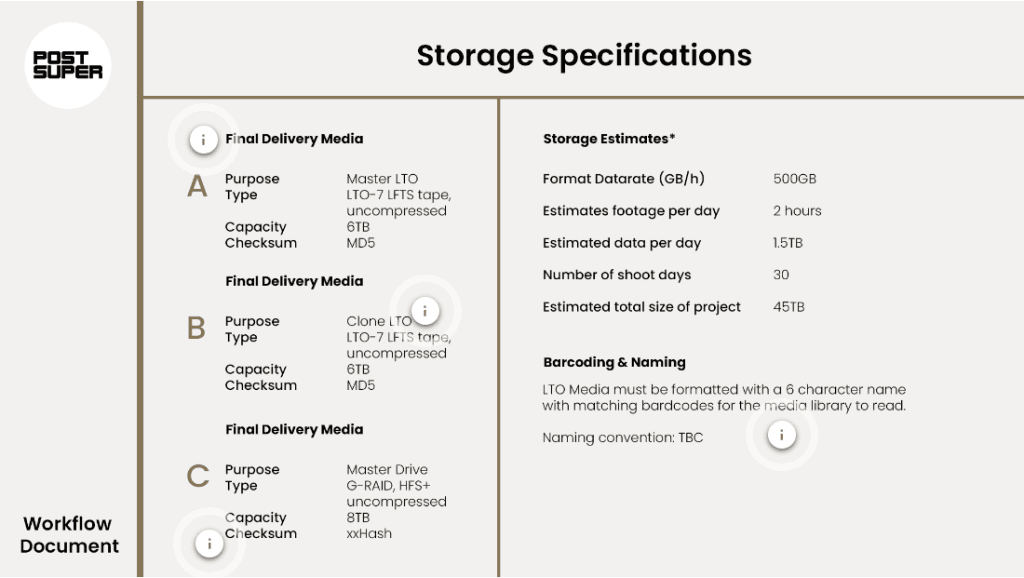
The Post Super platform currently offers three main kinds of courses, with several more in the pipeline.
I’ll focus on the Avid Post Super Micro-Certification courses, but there’s also:
- HoP, Producer & Director Courses
- Advanced Post-Production Techniques (6 hours)
- Post-Production Management Courses
- 10-week Post Production Training Course
- Post Essentials Training (3 days)
- Avid Post Super Micro-Certifications
- Post-Production Workflow for HETV and Film
- Post-Production Workflow for Picture
- Post-Production Workflow for Sound
- Post-Production Delivery for HETV and Film
- Post-Production Delivery Principles
- Post-Production Deliverables
- Post-Production Workflow for HETV and Film
UPDATE – Get 10% off any Post Super course with code: PS-10OFF
Micro-Certification: The Details
Both courses (Workflow/Delivery) are divided into two sub-courses, each of which takes about 15 hours to complete, for a total of approximately 30 hours.
The training takes place over 5 days on Zoom with plenty of interaction and additional insights from the instructors.
A week after you complete the course you can take the certification exam online.
You can get a full breakdown of what each course covers here:
But to give you a sense of it, here’s one of the chapters from the Picture Workflow course:
Online & Conform
- Roundtripping approach
- Digital intermediate approach
- Conform editors
- Finishing
- Hierarchy and responsibilities of online team
- Conforming
- Finishing systems
- Grading systems
The Cost
These Micro-certification courses cost £600, and because the training takes place over Zoom you can join in from any corner of the globe.
However, if you’re based in the UK, it’s well worth exploring applying for a ScreenSkills bursary for Post Super or any other career-advancing investment.
Why It’s Good
Having had a rummage in the Post Super training material and enjoyed testing my own knowledge against the quizzes at the end of each section, I can heartily say that doing one of Post Super’s courses will 100% be worth the time and effort.
Not only will you learn new things, but you’ll also be able to fathom out the depths of your existing knowledge and fill in gaps in your understanding.
For example:
- Do you know the 7 most common things* offline editorial will need to turn over to Sound at picture lock?
- And how to deliver them to a professional standard?
- And do you know what the sound team will actually do with your turnover?
If you’re entirely new to feature film and HETV workflows (or want to move into that kind of work) and are hungry to have an accurate, reliable, and complete understanding of the full picture and sound workflow, then Post Super’s courses would make an excellent career-building investment.
Check out Post Super for yourself here.
*1. Low res H.264 2. Better quality DNxHD/HR video which is ProTools/DAW compatible. 3. Guide tracks for Dialogue (mono), Music, and Effects (stereo). 4. Complete AAF or OMF. 5. Marked up script and Sound Recordist reports. 6. Change notes. 7. EDL.
Post Super – The Student Experience
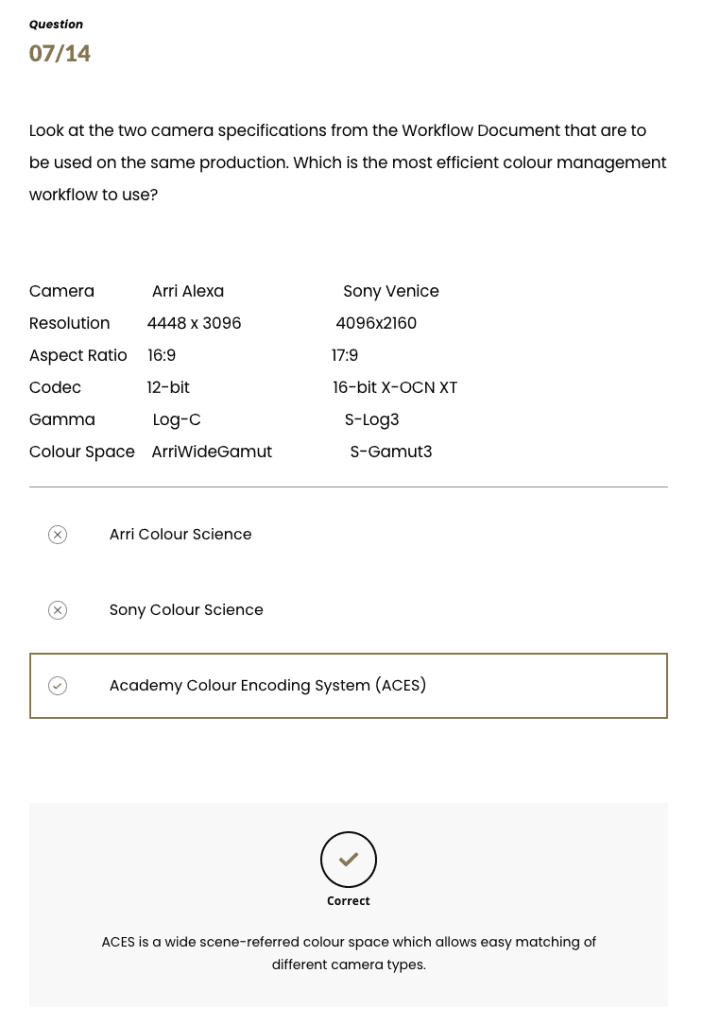
My mate Simon Mackenzie is a film editor with a great skill at unscripted storytelling. He recently invested a little downtime in enhancing his skillset by taking a Post Super course.
Here’s what he had to say about the experience.
What made you take the Post Super course: Avid Certified Post-Production Deliverables for High-End TV and Film?
Well, the past year has been challenging for me and many freelance editors working in broadcast TV and film. Work opportunities have been down, but one of the upsides of that is that I’ve had more time to focus on learning.
Rather than just expanding my software skills, I wanted to broaden my overall knowledge of post-production.
Post-Super’s expansive delivery course seemed like the perfect way to fill in the gaps in my understanding of what happens after I’ve locked my offline cut and the programme is prepped for broadcast.
What was the course experience like?
The course was a week-long virtual classroom via Zoom, with regular Q&A after each chapter on the Avid Learning central platform.
It felt intense at first, as we deep-dived into technical terms like color spaces, codecs, bit rates, and resolutions. While many in post-production geek out over this terminology, I come from a more creative, storytelling-focused background and had felt less comfortable with the technical side.
Thankfully, Michael at Post Super made these concepts much more accessible, turning what once seemed intimidating into something understandable.
Once we had a grasp on the technical terms, we could move through the post-production and delivery process, which felt much more manageable as a result.
By the end of the course, I left feeling that many of these technical terms, which had been floating around in my head for years, I now had a more solid understanding of.
What are some of the unexpected benefits of doing a Post-Super course?
We spent a couple of sessions covering picture and sound delivery requirements for cinema, which was completely new to me since I’ve never cut anything for theatrical release.
After those sessions, I gained a much greater appreciation for sound mixing and surround sound in films. The day after finishing the course, I took my boys to the cinema and was much more aware of the intricacies of sound design and speaker placement than before.
It also prompted me to upgrade my home sound system for watching films — I don’t know why I didn’t do it sooner!
What was the certification exam like?
I haven’t actually taken the exam yet. It was scheduled for the Friday after the course, but I couldn’t make it and haven’t got round to setting a new date.
Each session included quiz-style review questions to test our understanding, so I’m confident I’ll be well-prepared when I do take it.
Any other thoughts on Post-Super you’d like to share? Would you recommend it, and why?
I think the courses provided by Post Super are really interesting.
The Deliverables course, in particular, would be great for Assistant Editors starting out in HETV or post supervisors early in their careers. It provides a solid foundation in terminology, formats, expectations, and industry roles.
The knowledge gained, along with the certification, would be a huge confidence boost—especially for those without a film school background.
I’m sure the sound and picture workflow courses would be just as engaging and helpful for anyone looking to deepen their workflow knowledge and understanding.
Post Super: The Student-Teacher Experience
When I saw on LinkedIn that colorist and DaVinci Resolve certified Master Trainer Jamie Dickinson had recently taken a Post Super course I was curious to get his expert opinion on the experience.
Here’s what he had to say:
What made you take the Avid Certified Post-Production Workflow for High-End TV and Film course?
I actually took this course because we’re planning on me helping to deliver it to other teachers and trainers.
I teach the Train The Trainer for Blackmagic Design and I’ve created and taught something related, the ScreenSkills Using DaVinci Resolve for Online Editing for HETV for Avid Online Editors. This course does not have such a narrow focus though.
What was the course like?
Excellent. This is a really thorough overview of the entire post workflow, from on-set and the DIT (and before) to delivery, picture, and sound, to screen.
It’s not hands-on practical software training; it’s an interactive learning platform, mostly text-based with different chapters and topics, accompanied by short video presentations from their head of training Michael McHugh.
It breaks down the workflow for picture Post and sound Post, right through to delivery.
What are some of the benefits of doing a Post-Super course – have you added a page to their network?
It’s an invaluable insight into the other craft roles which I, as a colourist/online editor, may not be so familiar with. For example, the hierarchy of the sound department, Foley etc.
The course promotes best practices and efficient workflow, taking the guesswork out of procedures that inexperienced producers, students, editors, etc. may not be familiar with.
Everyone I’ve spoken to who’s done the course says something along the lines of:
‘I wished I’d known all this when I was starting out!’
And I am on their directory of freelancers, yes.
What was the certification exam like?
Hosted through the Avid Learning site, it’s a multiple-choice, timed exam.
These were fairly in-depth questions, e.g., HDR colour spaces and work practices, and quite tricky on bits that I didn’t know so well, like sound, music copyright, etc.
Any other thoughts on Post-Super you’d like to share?
They’re building a great resource and a very good network of people!

